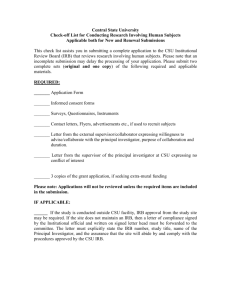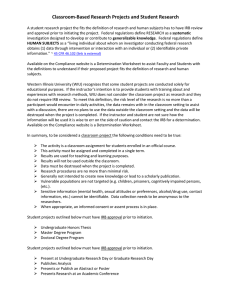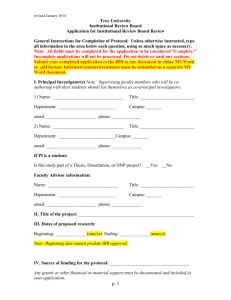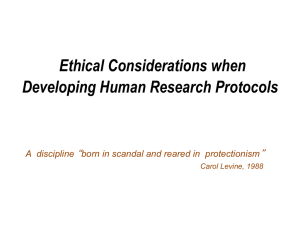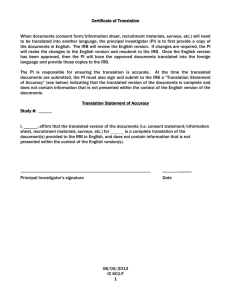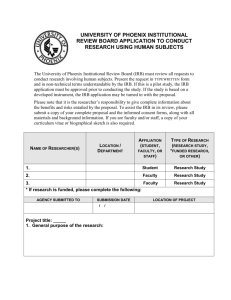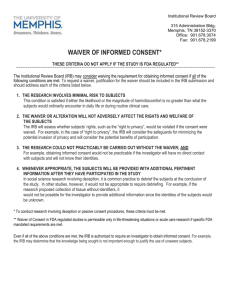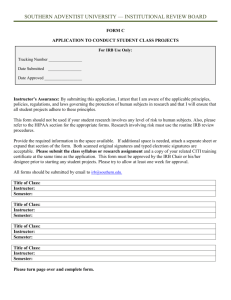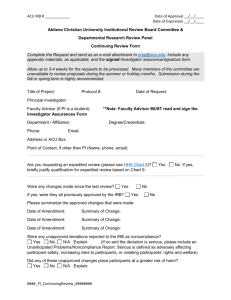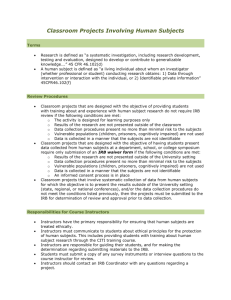University Student Research Policy
advertisement
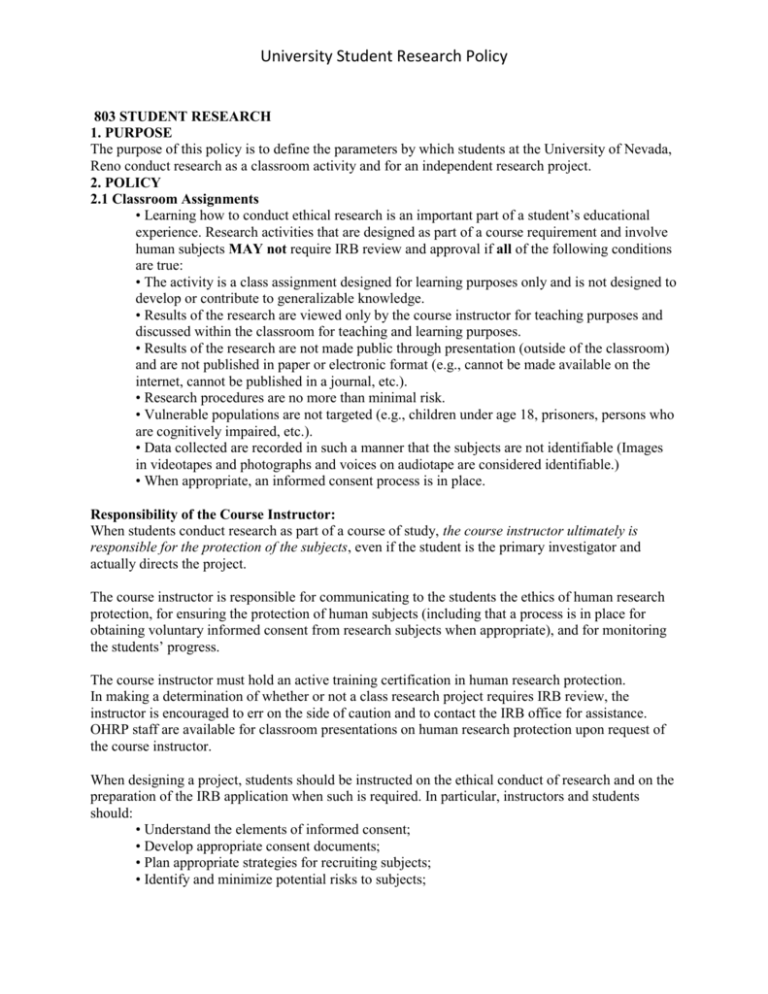
University Student Research Policy 803 STUDENT RESEARCH 1. PURPOSE The purpose of this policy is to define the parameters by which students at the University of Nevada, Reno conduct research as a classroom activity and for an independent research project. 2. POLICY 2.1 Classroom Assignments • Learning how to conduct ethical research is an important part of a student’s educational experience. Research activities that are designed as part of a course requirement and involve human subjects MAY not require IRB review and approval if all of the following conditions are true: • The activity is a class assignment designed for learning purposes only and is not designed to develop or contribute to generalizable knowledge. • Results of the research are viewed only by the course instructor for teaching purposes and discussed within the classroom for teaching and learning purposes. • Results of the research are not made public through presentation (outside of the classroom) and are not published in paper or electronic format (e.g., cannot be made available on the internet, cannot be published in a journal, etc.). • Research procedures are no more than minimal risk. • Vulnerable populations are not targeted (e.g., children under age 18, prisoners, persons who are cognitively impaired, etc.). • Data collected are recorded in such a manner that the subjects are not identifiable (Images in videotapes and photographs and voices on audiotape are considered identifiable.) • When appropriate, an informed consent process is in place. Responsibility of the Course Instructor: When students conduct research as part of a course of study, the course instructor ultimately is responsible for the protection of the subjects, even if the student is the primary investigator and actually directs the project. The course instructor is responsible for communicating to the students the ethics of human research protection, for ensuring the protection of human subjects (including that a process is in place for obtaining voluntary informed consent from research subjects when appropriate), and for monitoring the students’ progress. The course instructor must hold an active training certification in human research protection. In making a determination of whether or not a class research project requires IRB review, the instructor is encouraged to err on the side of caution and to contact the IRB office for assistance. OHRP staff are available for classroom presentations on human research protection upon request of the course instructor. When designing a project, students should be instructed on the ethical conduct of research and on the preparation of the IRB application when such is required. In particular, instructors and students should: • Understand the elements of informed consent; • Develop appropriate consent documents; • Plan appropriate strategies for recruiting subjects; • Identify and minimize potential risks to subjects; University Student Research Policy • Assess the risk-benefit ratio for the project; • Establish and maintain strict guidelines for protecting confidentiality, and • Allow sufficient time for IRB review (if necessary) and completion of the project. 2.2 Individual Research Projects Conducted by Students Independent study projects, senior theses, honors theses, undergraduate research projects, masters, doctoral, and advanced degree research, and similar exercises that meet the federal definitions of research and human subject must be independently submitted to the IRB by the student-investigator. [see Policy 101, 3.1, Applicable Regulations and Definitions] It is important to keep in mind that any human subject research activity that will ultimately contribute to part or all of a thesis, dissertation, or other type of publication or presentation must undergo IRB review and obtain approval prior to enrolling subjects and collecting data. IRB review cannot occur after a study has begun. Students may not serve as Principal Investigators. They must have a faculty sponsor who fulfills the Principal Investigator eligibility criteria and who will serve as Principal Investigator and faculty advisor on the study. Updated 12/11/2012

